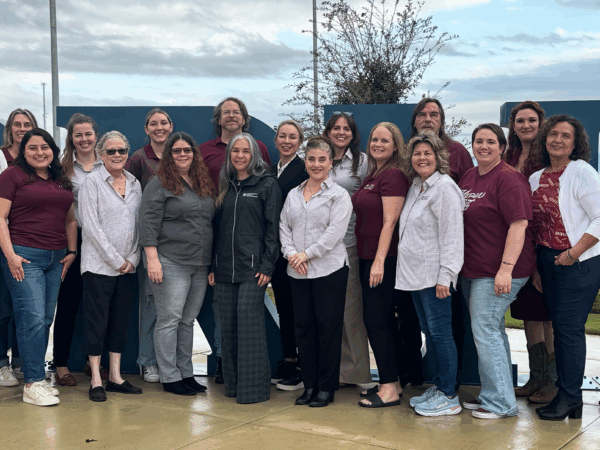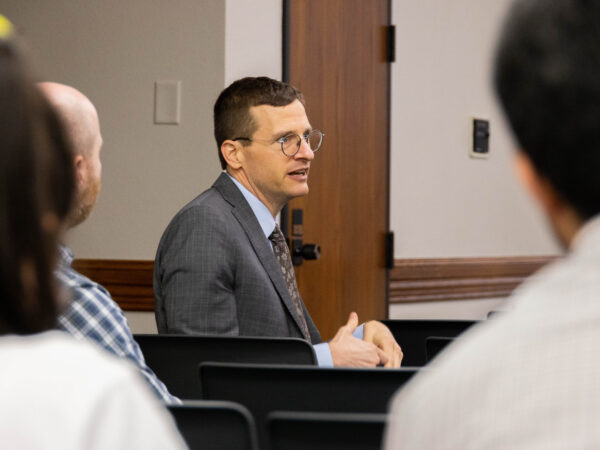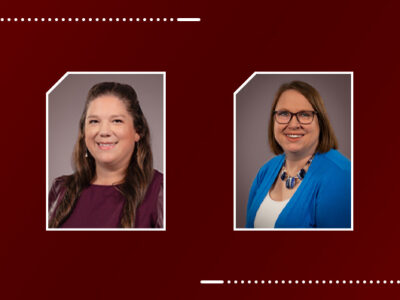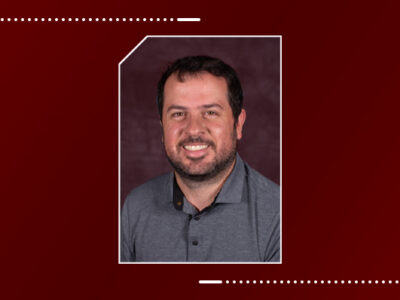New Grants Advance Research Across Texas
Collaborations across all four departments in the College of Education and Human Development are resulting in more than $125,000 in research thanks to a series of Catapult grants from the college.
At a faculty retreat during the fall semester, Dean Joyce Alexander announced $270,000 available for seed grants. The first round winners were selected in January. The four, second round winners were announced this month.
“It is very exciting to be able to provide funds for these teams to start answering important societal questions and advance research within the college. The problems related to education and human development are too complex for single individuals to tackle,” said Dr. Joyce Alexander, dean of the College of Education and Human Development.
“The beauty of the collaboration which is being accomplished within the catapult grants is that this effort serves to strengthen the college in several important ways,” explained Dr. Robert Muller. “Faculty become more familiar with the expertise and capabilities of other departments, dialogue across departments increases thus invoking further opportunities for collaboration, and this effort creates teams of experts who work to conduct developmental research and contribute significant findings to the field.”
Dr. Muller serves as the lead principal investigator in the proposal to create a data warehouse focusing on military children enrolled in Texas public schools. The research would be conducted through the Education Leadership Research Center (ELRC) and is a collaboration with the Center for Research and Development for English Language and Literacy Acquisition (CRDLLA).
The ELRC will build a database that includes demographic information and achievement data providing information on the conditions of military-connected students in Texas. The hope is to have a significant impact in informing policy decisions in school districts and the military.
Another proposal, led by Dr. Lynn Burlbaw, involves a collaboration with all four departments in the college to provide outreach to a high-need K-12 school district. It is a follow-up proposal to a project selected during round one of the Catapult grants. The project will explore ways to accomplish a number of goals including developing a full service school with a focus on STEM education and developing a model school as a training ground for educational leadership.
The project will expand on previous work with the school district by providing support in three areas: teacher development, socio-cognitive development of students and administrator development. The goal is for the work to be generalized to apply to other high-need schools. The project has the potential to raise our influence nationally and to secure new funding through national and foundation organizations.
Dr. David Wright is serving as primary investigator on a proposal involving the neural underpinnings of acquiring, maintaining and recovering skills. The proposal requests the purchase of a transcranial magnetic stimulation (TMS) system to broaden the examination of exercise as a novel target important for learning and an adjunct therapy for a range of psychological and neurological disorders.
“We can quickly and efficiently integrate a contemporary non-invasive brain stimulation tool, transcranial magnetic stimulation (TMS), to our experimental arsenal to understand the contribution of numerous neural regions to motor skill acquisition and rehabilitation,” said Dr. Wright.
The system also has the potential to address broader issues of relevance to faculty both within and across colleges.
The final proposal selected is a pilot study that focuses on a new approach for examining students working in teams on STEM projects. Dr. Michael Beyerlein is the primary investigator. With little scholarly literature available to suggest STEM disciplines in higher education systematically develop student teamwork competencies, the goal is to form a more thorough understanding of how social process contributes to learning and therefore increases the opportunities for facilitating content mastery.
Researchers will use a wearable communicator badge to collect data from students participating in group projects. Over time, data can be used to show the evolution of interaction patterns. The belief is that the use of these badges will reveal new insights about the way students learn during team projects that may stimulate pedagogical changes in STEM classrooms while improving the quality of STEM education.
About the Writer
Ashley is the Media Relations Coordinator and responsible for news coverage in the Department of Teaching, Learning and Culture as well as the Department of Educational Psychology.
Articles by AshleyFor media inquiries, contact Ashley Green.
Fundraising
To learn more about how you can assist in fundraising, contact Amy Hurley, Director of Development ahurley@txamfoundation.com or 979-847-9455














